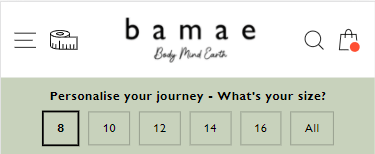Whilst we are all familiar with the concept of high blood pressure, what is less familiar is how dangerous it can be if it goes untreated.
For those that don’t know, blood pressure is determined by measuring the pressure of blood within the arterial walls. We’ve all had the experience of going to the doctors and having a strange device shrink our arm to an uncomfortable level – this is how it’s measured.
If blood pressure continues to rise it can lead to hypertension, which raises the risk of a heart attack, stroke and kidney disease.
What raises blood pressure
A whopping 90% of high blood pressure is mainly caused by a poor diet, lack of exercise and other bad habits. This means that a lifestyle change can dramatically reduce the likelihood of hypertension and all the problems that come with it.
Simple changes like choosing low sodium/salt foods and doing moderate exercise are some things that can significantly reduce our risk of high blood pressure. Whilst it may seem difficult to make better food choices, it’s easier than you think. Here at Bamae we’re going to share 10 foods already in your kitchen that can help reduce blood pressure.
Bananas

Bananas are a great source of potassium, which helps our muscles contract and aids the moving of nutrients in and out of cells. However, potassium can also offset sodium’s effects on our blood pressure.
Oats
Oats are a type of complex carb, which is good for releasing energy slowly and keeping us full for longer. Studies show that oats reduce the chance of heart disease by 15% (I).
Salmon

Salmon is great for our bodies as they’re rich in omega 3 oils and vitamin D. Vitamin D specifically is good for reducing blood pressure and helping the body absorb calcium.
Sweet potatoes
Sweet potatoes are staples in a blood-pressure reducing diet. They are also rich in magnesium and potassium. One thing that’s great about sweet potatoes is that they’re versatile. Whether you like them mashed, boiled, in fry form or as a sweet treat, they’ll all delicious and good for you!
Bell peppers

Bell peppers are a high source of vitamins and minerals, some including potassium, vitamin A and C. They also contain an anticoagulant that can also prevent blood clots responsible for heart attacks. You can cook with them, put them into a salad or cut them into slices and enjoy with some hummus.
Garlic
The National Institute of Health (NIH) state that allicin, a compound found in garlic, reduces blood pressure. This compound is released when garlic is chopped (II). The good news in garlic can be added to pretty much any dish, so this is an easy one to incorporate into your mealtimes.
Broccoli
Broccoli is a cruciferous vegetable that belongs to the Brassica plant family. Cruciferous vegetables are particularly beneficial for us because they have an array of goodness; they’re highly nutritious and have even been studied for their anti-cancer properties. Other cruciferous vegetables are bok choy, cabbage, cauliflower, and radishes.
Blueberries
Nitric oxide found in blueberries increases blood flow and in turn reduces blood pressure. A study found that 22g of freeze-dried blueberries reduced high blood pressure in post-menopausal women (III). That works out to a handful of blueberries!
Dark chocolate

This one may come as a surprise to some of you, since we’ve been so conditioned to associate chocolate as being innately bad for us. However, a study conducted by Heart found that consuming dark chocolate (moderately!) can lower the risk of cardiovascular disease (IV).
Olive oil
Whilst this isn’t something to ingest by itself, olive oil contains different polyphenol compounds which have been linked to lowering blood pressure and high cholesterol. But wait! There’s more. Polyphenols can also reduce symptoms of neurodegenerative diseases. A study found that those with Alzheimer's had improved cognitive function after consuming olive oil with high polyphenols for a year (IIV). One thing to note is that not all olive oils are high in polyphenols; that means Tesco value isn’t going to cut it! When purchasing, look on the label for a phenolic content of 250mg or more.
If you suffer from high blood pressure and are concerned then please reach out to a medical professional, especially if you’re experiencing discomfort. It’s always better to phone 111 or your GP and discuss your symptoms rather than tell yourself you’re being silly or masking symptoms with pain killers.
Often times we look to natural remedies when we’re already ill, however the key to staying healthy is prevention. So now you've come to the end of this article, why not take a little trip to your kitchen and rummage around to see how many of these foods you can find?




